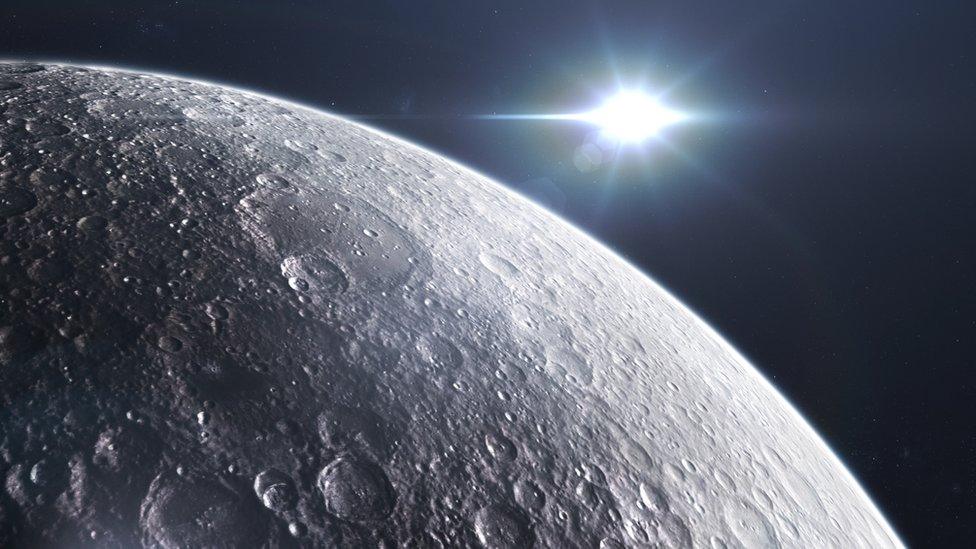How was the Moon鈥檚 crust formed?
- Published
- comments

The Moon is made up of lots of layers including its thick crust, but have you ever wondered how it was formed?
It was previously thought that the Moon's rocky outer layer was created by magmas, or molten rock, found deep beneath its surface.
However, a new study suggests parts of the crust were actually created following a huge collision.
"The discovery reveals that unimaginably violent impact events helped to build the lunar crust, not only destroy it," said Dr James Darling from the University of Portsmouth.
It was previously believed that asteroids and comets colliding with the Moon only caused destruction, but this has now been debunked by scientists.
How was the discovery made?
Samples from the surface of the Moon were taken during the Apollo 17 mission in 1972
A sample of Moon rock collected by NASA astronauts during the Apollo 17 space mission in 1972 was used to make the finding.
Scientists found evidence that the rock had been formed under extremely hot conditions - temperatures exceeding a scorching 2300 degrees to be exact!
The team who made the discovery used a special technique called electron backscatter diffraction. They found that cubic zirconia, which is a mineral only occurring in rocks heated above 2300 degrees, previously existed in the sample they were studying.
They believe such high temperatures could have been reached as a result of a large impact event which melted the Moon's outer layer.
- Published14 October 2019
- Published20 July 2019
- Published27 April 2020
